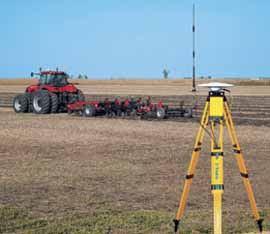Farming missing a trick with new technology

New technology presents arable farmers with the tools to improve environmental performance and deliver sustainable intensification. But precision farming will remain niche unless it becomes available with “push-a-button” ease, while consumer concerns on other technologies must be overcome.
These were the arguments laid out by the panel and discussed at the Arable Conference at Cereals 2011, partnered by the Oxford Farming Conference.
Yield-mapping has allowed Phil Jarvis, managing 770ha of Leicestershire clay soils as part of the Allerton project, to determine the outside 7m of crop delivers just 81% of the field average gross margin, while the middle of the field brings in 109%.
“When it comes to delivering intensive sustainability, I want that in the middle of my field. I can deliver environmental benefits in the outside 7m of the field where my least productive land is.”
By applying new technology to areas managed for wildlife, rather than letting them turn into a “weedy wilderness”, farmers can deliver real improvement from just 1-2% of their land, according to research carried out at Loddington, he said.
But holding many farmers back from precision farming is that they are not prepared to put in the management time to make it work, according to Mark Moore, head of product development at Agco.
“They want to push a button and it works. With precision farming all the elements are there, but it’s not exactly seamless technology.” Isobus and Isoxml offer solutions to integrate systems, he suggested, while those that offer real-time decisions in the field should help progress.
But holding back progress at a European level was the politics that surrounded new technology, said Dominic Dyer of the Crop Protection Association. “People accept new technology in medicine and other other areas of life, so why not in agriculture?”
Demand for food energy and land is rising but agricultural productivity in Europe is beginning to decline, he pointed out. “Politicians are in a state of denial over this. They need to be bolder.”
Cereals 2011 host David Knott said improved accuracy was one of the benefits new technology brings him. “We need to look at how we can make more use of it. With carbon-footprinting becoming more to the fore, I can see technology will help us achieve these targets.”

